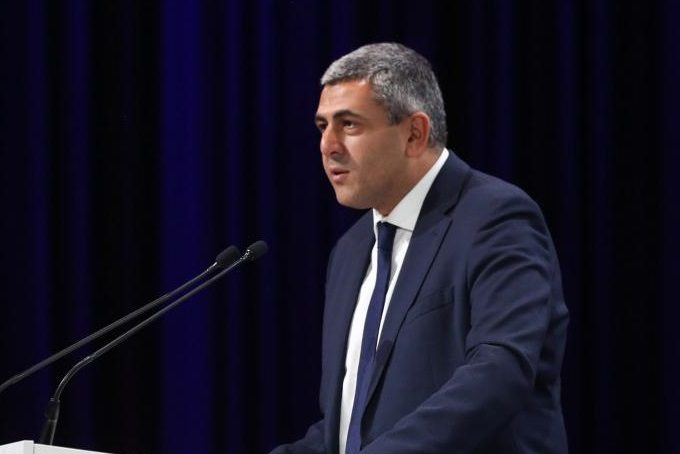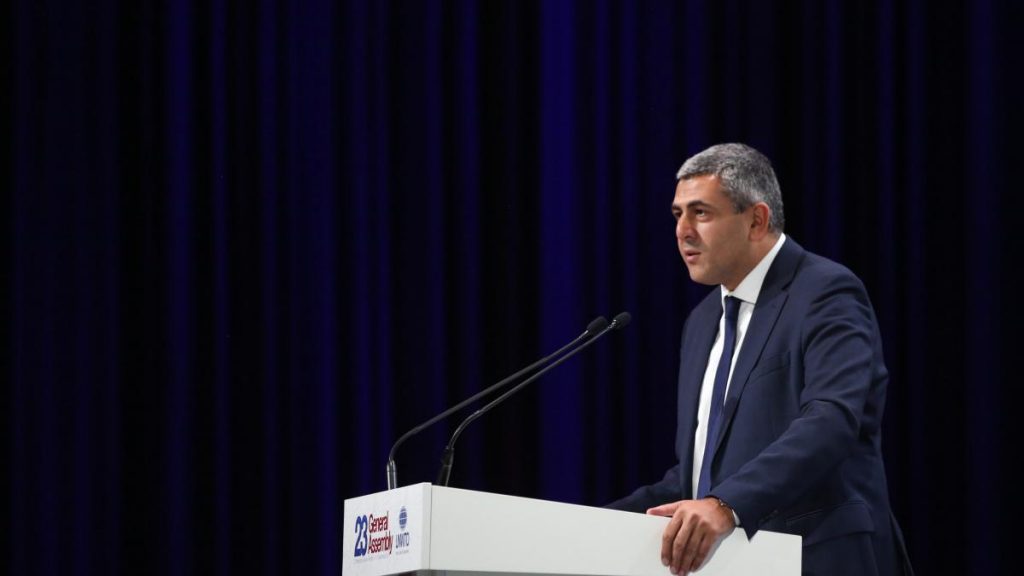Last January, UNWTO members re-elected Zurab Pololikashvili for a new mandate to lead the agency. HN had an exclusive chat with him to hear his upcoming plans and strategies amid an uncertain global tourism industry.
What will be your new mandate’s strategy, and how will you shape it based on what has been achieved in previous years?
The current crisis is the biggest in tourism history. It is also, however, an opportunity to rethink and restart tourism. This is at the center of my new mandate and will define UNWTO’s work over the next four years. The most immediate concern is to restart tourism. Many millions of jobs and businesses are depending on this. For this to happen, UNWTO is taking the lead in establishing new safety protocols for international travel and ensuring these are harmonized globally. This includes a first-ever International Code for the Protection of Tourists, a landmark legal framework that will help rebuild confidence in travel. UNWTO will also continue to focus on innovation as we transform tourism, and we will build on the sector’s potential to provide opportunity for all, including through education and job creation for women and youth. All of this will build on the success we have enjoyed during my first mandate, transforming UNWTO into an agile, forward-looking organization that works for its members.
The most immediate concern is to restart tourism
How did the COVID-19 crisis impact you as a hospitality and tourism veteran?
The biggest impact for me personally was, of course, that I had to pause in-person visits to our members. Like so many people, I have been working from home, following UNWTO’s motto of staying home today so we can travel tomorrow. However, as it is safer to do so, I have resumed these visits, allowing me to meet with leaders and discuss plans to restart tourism and ensure the sector contributes to wider recovery efforts.
What did you learn from it, especially that you are dealing with global industry stakeholders?
This crisis has shown both the diversity of tourism – how it impacts on almost every part of our societies – but also what we as a sector have in common. I have been impressed with the shared determination of every part of the sector to adapt and overcome this unprecedented challenge. Indeed, the pandemic has demonstrated just how good tourism is at adapting and finding solutions, not least in making safe travel possible at every stage of the tourist journey. Tourism has also been quick to restore confidence in travel, including through proactively introducing robust health and hygiene protocols. And our sector has been at the forefront of promoting the solidarity and cooperation that not only allows us to respond to the pandemic effectively but, looking ahead, ensures tourism is a future driver of inclusive and sustainable recovery, benefiting both people and the planet.
What do you think were the biggest mistakes that hospitality leaders made during this phase?
This has been an unprecedented crisis for everybody, including governments, societies, economies and individuals. And, of course, tourism has been one of the hardest-hit sectors. Rather than looking at shortfalls, I prefer to look at the lessons learned, as the sector quickly faced the challenges and adapted. Hospitality has led the way in introducing strict health and hygiene protocols, helping restore confidence in tourism.
What’s your advice?
From the very beginning, I have stressed the importance of coordination and cooperation. This applies to the introduction and the lifting of travel restrictions. And now, as many countries begin to roll out vaccines against COVID-19, we need harmonized protocols to ensure the safe, responsible and timely restart of tourism. Vaccines are welcome, but they are only one part of the solution, to be used alongside other – less discriminatory – measures such as testing on departure and at arrival, effective contact tracing and so-called “health passports.”
Which approach to handling COVID-19 was most effective?
While the pandemic has affected all of us, destinations and countries have chosen to respond in their own ways. What has been made clear is that coordination is key to success, and that going it alone risks undermining progress and confidence. This is why, from the very start of the crisis, UNWTO has been calling for cooperation at every level – including between countries and between the public and private sectors.
I have also been clear that this is no time for hesitancy. Standing still is not an option – we need to move and keep adapting so that we can restart tourism as soon as it is safe to do so. I have been especially impressed by those countries that have used this pause in tourist arrivals as an opportunity to keep investing in tourism and building up and transforming their sectors. For example in the Middle East, even in these challenging times, Saudi Arabia has pushed ahead with plans to open the first UNWTO Regional Office for the region as well as hosting a new UNWTO Academy designed to provide jobs and opportunities for many.
How do you foresee the next phase?
As I said, this is a chance to rethink and restart tourism. Our sector will recover. It is resilient and able to adapt. What’s more, the desire to travel and enjoy new experiences will never leave us. UNWTO sees domestic tourism returning before international tourism. This will deliver many benefits, supporting jobs and businesses and helping with the recovery of our societies. Then, as confidence in travel returns, international tourist arrival numbers will begin to grow again.



















